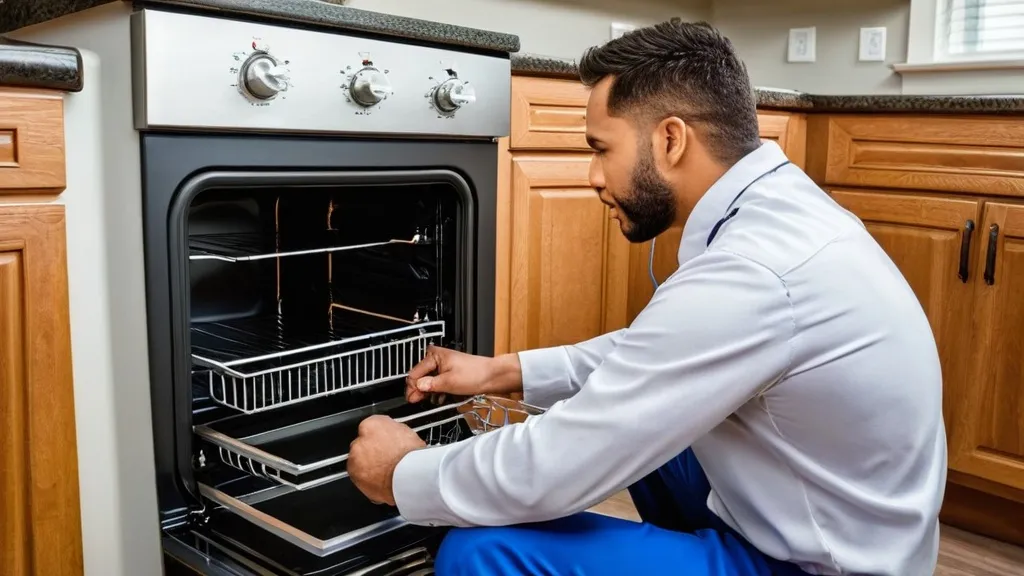Evaporator coils are an essential component of HVAC (Heating, Ventilation, and Air Conditioning) systems. They play a crucial role in the cooling process by absorbing heat from the air and transferring it to the refrigerant. This allows the HVAC system to cool the air before it is distributed throughout a building.
Table of Contents
- Key Takeaways
- Common Evaporator Coil Issues and their Causes
- Signs of Evaporator Coil Problems: How to Identify Them
- Understanding Refrigerant Leaks and their Impact on Evaporator Coils
- Dirty Evaporator Coils: Causes and Consequences
- Frozen Evaporator Coils: How to Prevent and Fix Them
- Coil Corrosion: Causes, Effects, and Solutions
- Evaporator Coil Replacement: When is it Necessary?
- Maintenance Tips for Evaporator Coils: How to Keep Them Running Smoothly
- Hiring a Professional for Evaporator Coil Repair and Maintenance: What to Look for
- What are the common issues that can cause problems with the evaporator coil in an HVAC system?
- FAQs
- What is an evaporator coil?
- What are some common issues with evaporator coils?
- What causes evaporator coils to freeze?
- How can I tell if my evaporator coil is leaking?
- What should I do if my evaporator coil is clogged?
- Can evaporator coil issues be prevented?
Proper maintenance of evaporator coils is vital for the efficient operation of HVAC systems. Over time, these coils can become dirty or develop other issues that can hinder their performance. Neglecting maintenance can lead to reduced cooling capacity, increased energy consumption, and even system breakdowns.
Key Takeaways
- Evaporator coils are an important component of HVAC systems that help cool and dehumidify indoor air.
- Common issues with evaporator coils include refrigerant leaks, dirt buildup, and corrosion.
- Signs of evaporator coil problems include reduced cooling efficiency, strange noises, and foul odors.
- Refrigerant leaks can cause serious damage to evaporator coils and should be addressed immediately.
- Regular maintenance, such as cleaning and inspection, can help prevent evaporator coil issues and prolong their lifespan.
Common Evaporator Coil Issues and their Causes
There are several common issues that can affect evaporator coils. One of the most common problems is coil corrosion, which occurs when the coils are exposed to moisture or corrosive substances. This can lead to leaks and reduced efficiency.
Another issue is dirty coils, which can occur due to a lack of regular cleaning. Dust, dirt, and other debris can accumulate on the coils, reducing their ability to absorb heat effectively. This can result in decreased cooling capacity and increased energy consumption.
Refrigerant leaks are also a common problem with evaporator coils. These leaks can occur due to corrosion, physical damage, or poor installation. When refrigerant leaks occur, it not only affects the performance of the evaporator coils but also puts additional strain on the entire HVAC system.
Signs of Evaporator Coil Problems: How to Identify Them
There are several signs that indicate potential issues with evaporator coils. One common sign is reduced cooling capacity. If you notice that your HVAC system is not cooling your space as effectively as it used to, it could be due to a problem with the evaporator coils.
Another sign is increased energy consumption. If your energy bills have been steadily rising without any other explanation, it could be a result of inefficient evaporator coils. When the coils are dirty or damaged, the HVAC system has to work harder to cool the air, leading to increased energy usage.
Ice buildup on the evaporator coils is another sign of a problem. When the coils freeze, it can indicate issues such as low refrigerant levels or restricted airflow. If you notice ice on your evaporator coils, it is important to address the issue promptly to prevent further damage to the system.
Understanding Refrigerant Leaks and their Impact on Evaporator Coils
Refrigerant leaks can have a significant impact on the performance of evaporator coils. When refrigerant leaks occur, it reduces the amount of refrigerant available for absorbing heat from the air. This can result in reduced cooling capacity and increased energy consumption.
Refrigerant leaks can also lead to ice buildup on the evaporator coils. When there is a low refrigerant level, the coils may not be able to absorb enough heat to prevent condensation from freezing. This can cause ice to form on the coils, further reducing their efficiency.
It is important to address refrigerant leaks promptly to prevent further damage to the evaporator coils and the entire HVAC system. A professional HVAC technician can locate and repair the leak, ensuring that the system operates at optimal efficiency.
Dirty Evaporator Coils: Causes and Consequences
Dirty evaporator coils are a common issue that can significantly impact HVAC system performance. There are several causes of dirty coils, including a lack of regular maintenance, poor air filtration, and environmental factors such as dust and pollen.
When evaporator coils become dirty, it reduces their ability to absorb heat effectively. This means that the HVAC system has to work harder and longer to cool the air, resulting in increased energy consumption. Dirty coils can also lead to reduced cooling capacity, making it difficult to maintain a comfortable indoor temperature.
In addition to decreased efficiency, dirty coils can also lead to poor indoor air quality. When the coils are covered in dirt and debris, it can provide a breeding ground for mold, bacteria, and other allergens. This can lead to respiratory issues and other health problems for building occupants.
Regular cleaning of evaporator coils is essential to prevent these issues. By keeping the coils clean, you can ensure optimal performance and maintain good indoor air quality.
Frozen Evaporator Coils: How to Prevent and Fix Them

Frozen evaporator coils are a common problem that can occur due to several reasons. One of the main causes is restricted airflow. When there is not enough airflow over the coils, it can cause condensation to freeze and form ice.
To prevent frozen coils, it is important to ensure proper airflow. This can be done by regularly changing air filters, keeping vents and registers clear of obstructions, and ensuring that the blower fan is functioning properly.
If you notice ice buildup on your evaporator coils, it is important to address the issue promptly. Turn off the HVAC system and allow the ice to melt naturally. Once the ice has melted, check for any underlying issues such as low refrigerant levels or restricted airflow. If necessary, contact a professional HVAC technician to diagnose and fix the problem.
Coil Corrosion: Causes, Effects, and Solutions
Coil corrosion is a common issue that can affect evaporator coils. It occurs when the coils are exposed to moisture or corrosive substances over time. Corrosion can lead to leaks, reduced efficiency, and even system breakdowns.
There are several causes of coil corrosion, including exposure to moisture from condensation or leaks, exposure to corrosive chemicals or substances in the air, and poor coil construction or materials.
The effects of coil corrosion can be significant. Leaks caused by corrosion can lead to refrigerant loss, reduced cooling capacity, and increased energy consumption. Corrosion can also cause the coils to become weak and brittle, increasing the risk of coil failure.
Preventing coil corrosion is essential for maintaining the performance and longevity of evaporator coils. This can be done by ensuring proper installation, regular maintenance, and addressing any leaks or moisture issues promptly.
Evaporator Coil Replacement: When is it Necessary?
There are several signs that indicate the need for evaporator coil replacement. One common sign is frequent breakdowns or repairs. If you find yourself constantly calling for HVAC repairs, it could be a sign that the coils are worn out and need to be replaced.
Another sign is reduced cooling capacity. If your HVAC system is no longer able to cool your space effectively, it could be due to worn-out or damaged evaporator coils. In some cases, replacing the coils may be more cost-effective than trying to repair them.
It is important to have evaporator coil replacement done by a professional HVAC technician. They will be able to properly size and install the new coils, ensuring optimal performance and efficiency. While the cost of replacement can vary depending on the size and type of coils needed, it is an investment that can improve the overall performance and lifespan of your HVAC system.
Maintenance Tips for Evaporator Coils: How to Keep Them Running Smoothly
Regular maintenance is essential for keeping evaporator coils running smoothly. Here are some tips to help you maintain your coils:
1. Regularly clean the coils: Dust and debris can accumulate on the coils over time, reducing their efficiency. Regularly cleaning the coils with a soft brush or vacuum cleaner can help remove dirt and improve performance.
2. Change air filters regularly: Dirty air filters can restrict airflow over the coils, leading to reduced cooling capacity and increased energy consumption. Make sure to change air filters regularly to ensure proper airflow.
3. Keep vents and registers clear: Blocked vents and registers can restrict airflow, causing the coils to work harder. Make sure to keep vents and registers clear of obstructions to maintain optimal airflow.
4. Schedule regular maintenance: It is recommended to have your HVAC system inspected and maintained by a professional HVAC technician at least once a year. They can perform a thorough inspection, clean the coils, check refrigerant levels, and address any issues before they become major problems.
Hiring a Professional for Evaporator Coil Repair and Maintenance: What to Look for
When it comes to evaporator coil repair and maintenance, it is important to hire a professional HVAC technician. Here are some qualities to look for when hiring a technician:
1. Experience and expertise: Look for a technician who has experience working with evaporator coils and HVAC systems. They should have the knowledge and skills to diagnose and repair any issues that may arise.
2. Licensing and certifications: Make sure the technician is licensed and certified to work on HVAC systems. This ensures that they have met the necessary requirements and have the proper training to perform the job safely and effectively.
3. Good reputation: Check online reviews and ask for references to ensure that the technician has a good reputation for quality work and customer service.
4. Transparent pricing: Look for a technician who provides transparent pricing and is upfront about the costs involved in repairs or maintenance.
Before hiring a technician, make sure to ask questions about their experience, qualifications, and pricing. This will help you make an informed decision and ensure that you are hiring a professional who can effectively address any issues with your evaporator coils.
Evaporator coils play a crucial role in the cooling process of HVAC systems. Proper maintenance and prompt repair of any issues are essential for maintaining optimal performance and efficiency. By understanding common issues such as dirty coils, refrigerant leaks, and coil corrosion, you can take proactive steps to prevent these problems from occurring or address them promptly. Regular maintenance, including cleaning the coils and changing air filters, is vital for keeping evaporator coils running smoothly. Hiring a professional HVAC technician with experience and expertise in evaporator coil repair and maintenance is recommended to ensure the job is done correctly and efficiently. By taking these steps, you can ensure that your HVAC system operates at its best, providing comfort and efficiency for years to come.
If you’re facing challenges with your evaporator coil, it’s important to identify and fix the issues promptly to ensure optimal performance of your HVAC system. In a related article by 911 Appliance, they provide valuable insights into common problems that can arise with evaporator coils and offer practical solutions to address them. From refrigerant leaks to frozen coils, this article covers it all. To learn more about how to tackle evaporator coil challenges, check out the article here.
What are the common issues that can cause problems with the evaporator coil in an HVAC system?
Common issues that can cause problems with the evaporator coil in an HVAC system include dirt and debris buildup, refrigerant leaks, and airflow restrictions. Diagnosing compressor issues is crucial to identify any potential problems early and ensure the evaporator coil functions effectively. Regular maintenance can help prevent these issues.
FAQs
What is an evaporator coil?
An evaporator coil is a component of an air conditioning system that is responsible for absorbing heat from the air inside a building.
What are some common issues with evaporator coils?
Some common issues with evaporator coils include freezing, leaking, and clogging.
What causes evaporator coils to freeze?
Evaporator coils can freeze due to a variety of reasons, including low refrigerant levels, dirty air filters, and malfunctioning thermostats.
How can I tell if my evaporator coil is leaking?
Signs of a leaking evaporator coil include reduced cooling performance, hissing or bubbling sounds coming from the air conditioning unit, and the presence of refrigerant on or around the unit.
What should I do if my evaporator coil is clogged?
If your evaporator coil is clogged, you should contact a professional HVAC technician to clean the coil and address any underlying issues that may have caused the clog.
Can evaporator coil issues be prevented?
Yes, evaporator coil issues can be prevented by regularly changing air filters, scheduling routine maintenance with a professional HVAC technician, and addressing any issues as soon as they arise.



